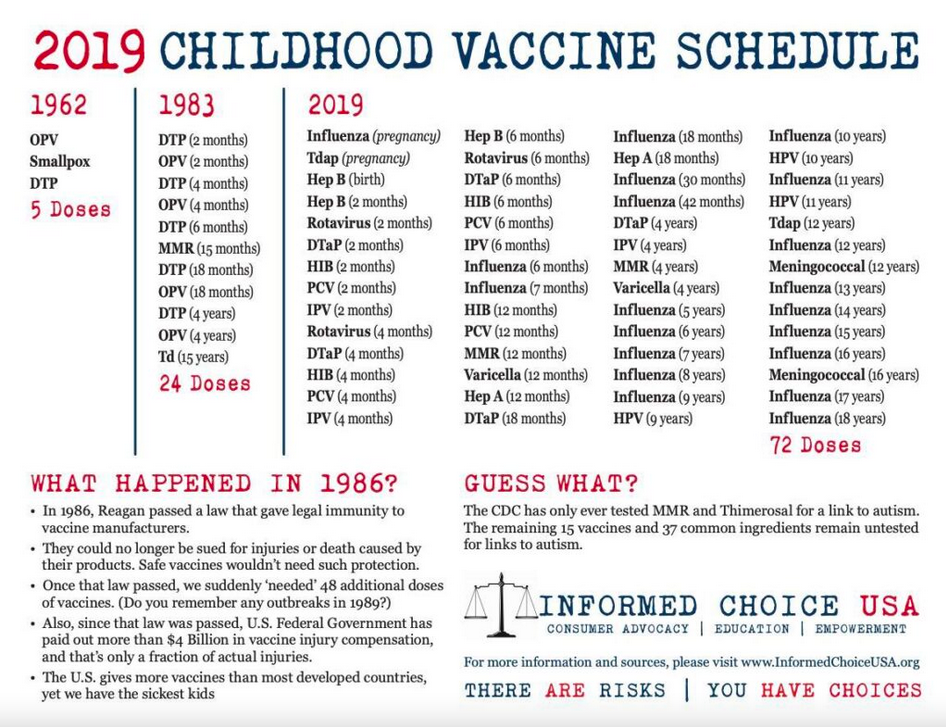
Newly-released CDC data reveals a record increase in vaccine exemptions among kindergarten-aged children for the 2023–2024 school year, as a growing number of parents rethink the vaccination schedules recommended for their children, and begin to make more informed and health-conscious decisions.
This trend reflects a major shift in public sentiment, driven by rising skepticism toward the U.S. Centers for Disease Control and Prevention (CDC) and its messaging around vaccine safety and efficacy.
The percentage of exemptions rose from 3% to 3.3%, representing approximately 127,000 children whose parents opted out of one or more required vaccinations.

BYPASS THE CENSORS
Sign up to get unfiltered news delivered straight to your inbox.
Latest Video
This marks a continuation of a trend that began in the 2019–2020 school year, with vaccination rates dropping in over 30 states.
For many families, this shift stems from heightened awareness following the rollout of mRNA-based COVID-19 vaccines. Parents are now scrutinizing not only these new technologies but also long-standing childhood vaccines, particularly as concerns about adverse effects grow.
While mainstream outlets frame “vaccine skepticism” as troubling, in reality it signals a positive movement toward greater autonomy and critical thinking in healthcare decisions.
RELATED: Childhood Autism Rates Have Surged 2,678% Since Vaccine Makers Gained Legal Immunity
The skepticism isn’t without basis. Research has long pointed to the waning immunity of some vaccines. A 2018 study in Science Translational Medicine found that immunity from the mumps vaccine diminishes significantly over time, with 25% of recipients losing protection within eight years.
Similarly, the DTaP vaccine has been shown to lose effectiveness against pertussis rapidly, with studies suggesting that natural immunity may be more durable than vaccine-induced protection.
Such findings call into question the push for more vaccine doses, such as the CDC’s recommendation for a third dose of MMR for young adults. These measures fail to address the root issues of declining immunity while exposing children to significant additional risks.

For parents, the decision to opt out of certain vaccines is often driven by a cost-benefit analysis. While vaccines aim to protect against diseases, many families are concerned about potential side effects, including neurological and autoimmune disorders.
The CDC refuses to perform studies of vaccinated versus unvaccinated children, however unofficial surveys suggest that unvaccinated children have far lower rates of chronic illnesses and autism compared to their vaccinated peers.f
A 2021 study published in Vaccine also highlighted the potential for long-term adverse effects, including gut issues and autoimmune responses, sparking debates about the overall safety of the growing vaccine schedule.
The increase in vaccine exemptions reflects more than just medical concerns—it represents a broader cultural shift. Parents are increasingly taking control of their children’s healthcare decisions, rejecting one-size-fits-all mandates in favor of personalized approaches. This push for autonomy has been fueled in part by declining trust in public health institutions and their alignment with corporate interests.
With the conversation around vaccines becoming more nuanced, it’s clear that the era of unquestioning compliance is fading—and a new era of informed decision-making is taking its place.
Source link

